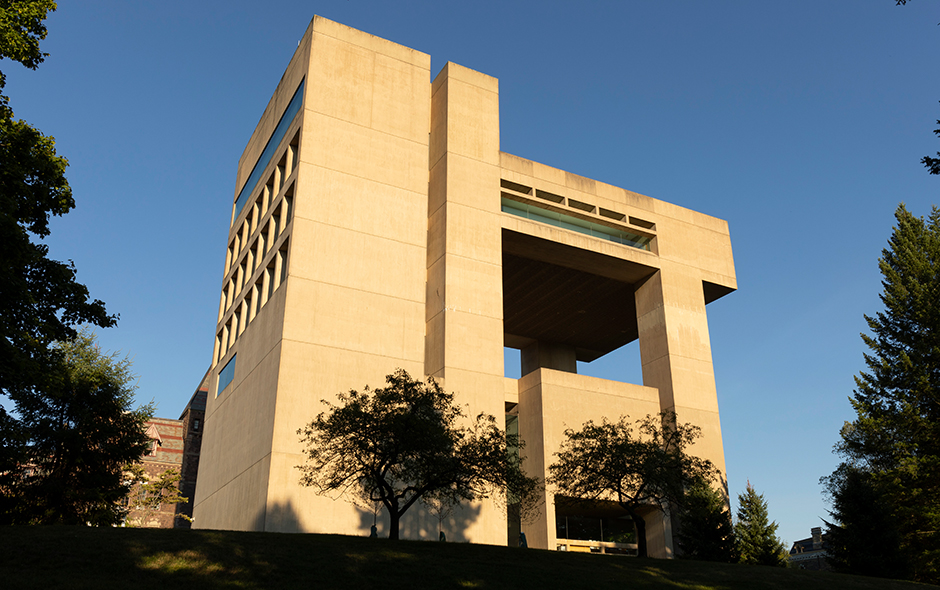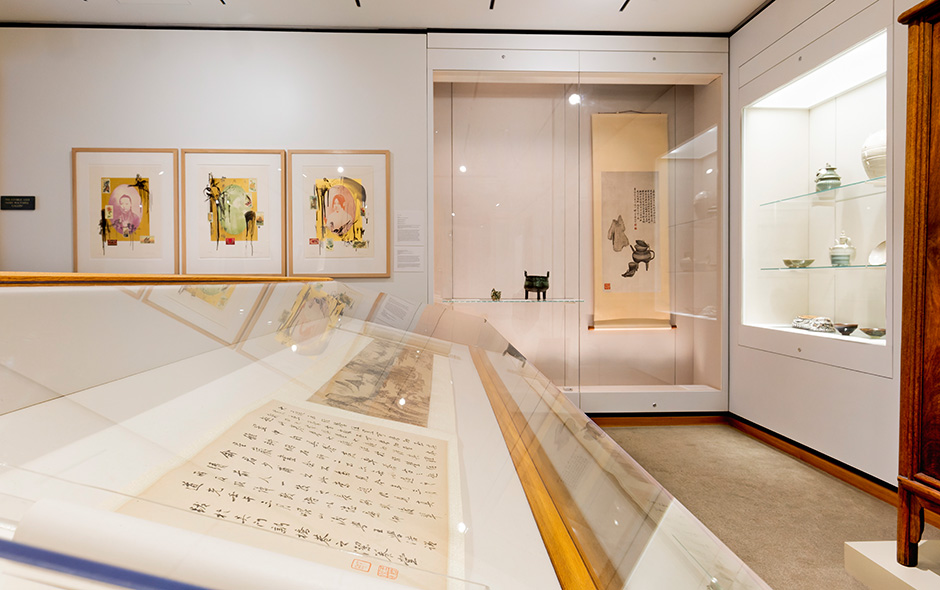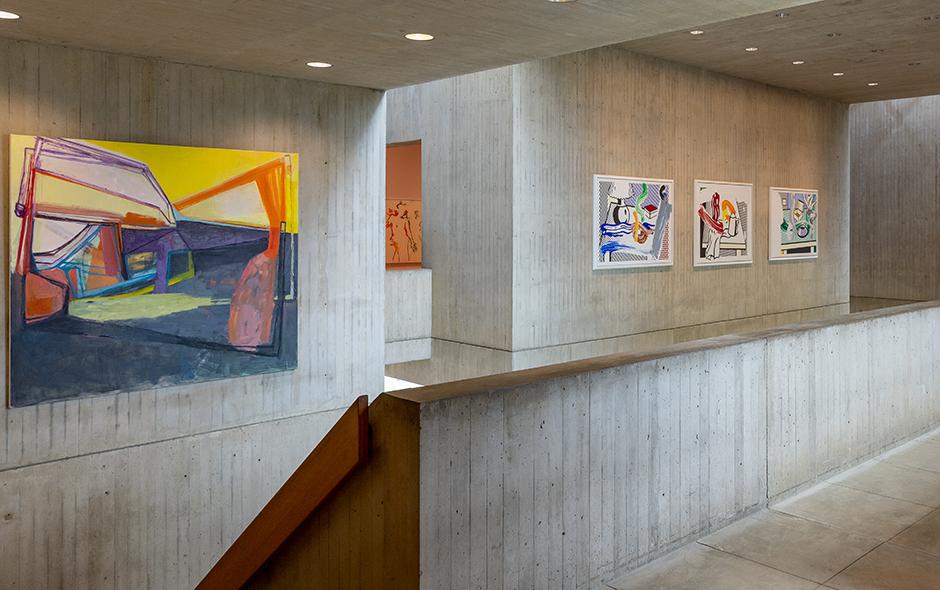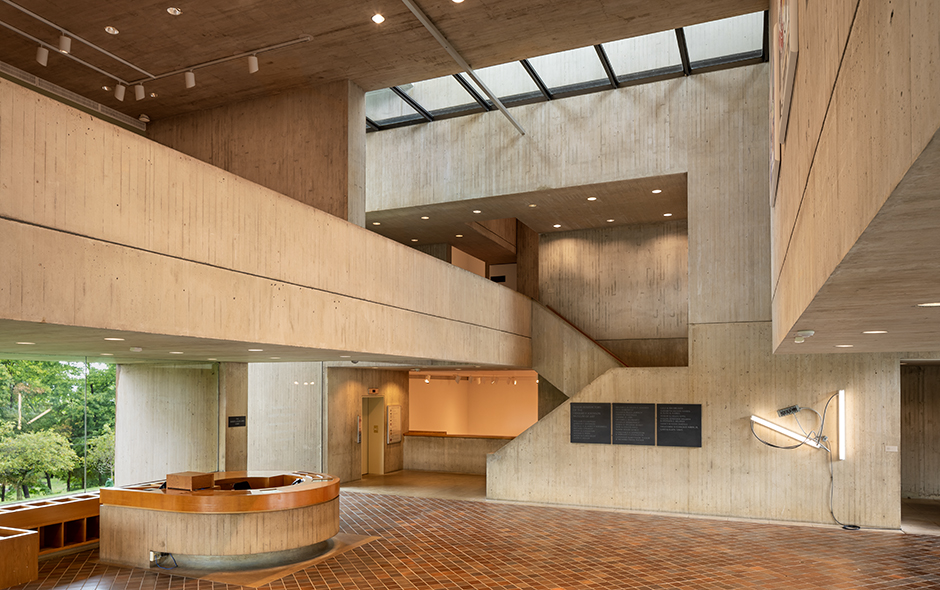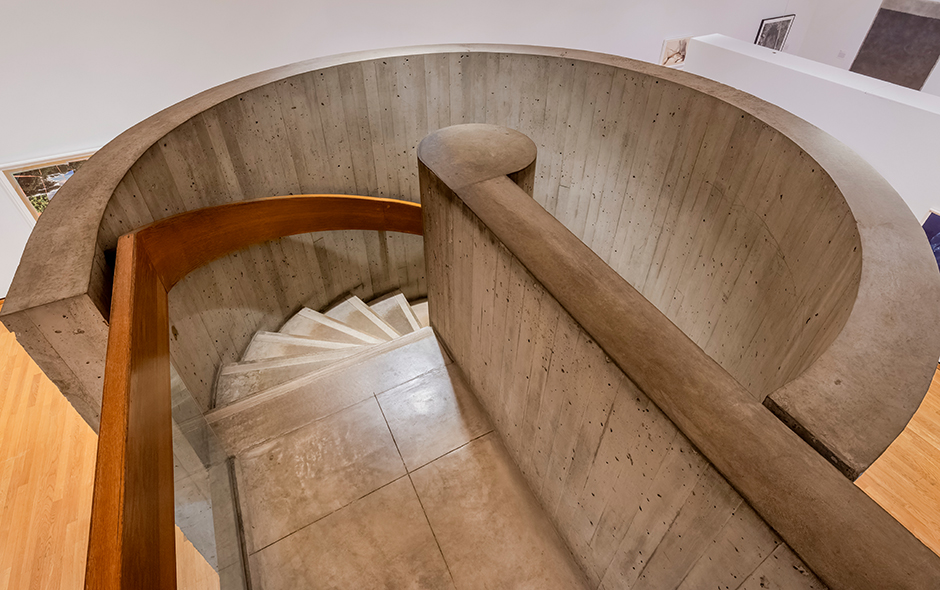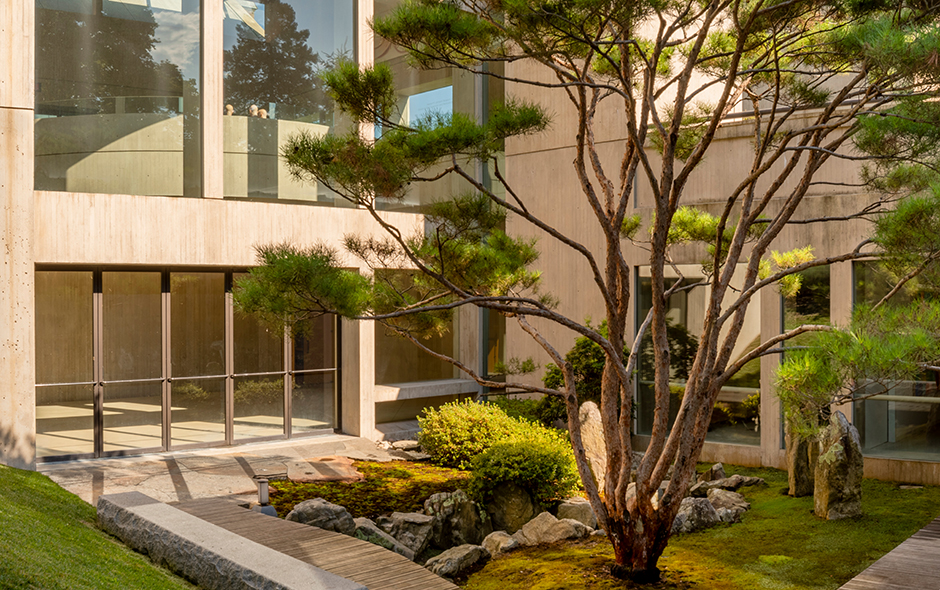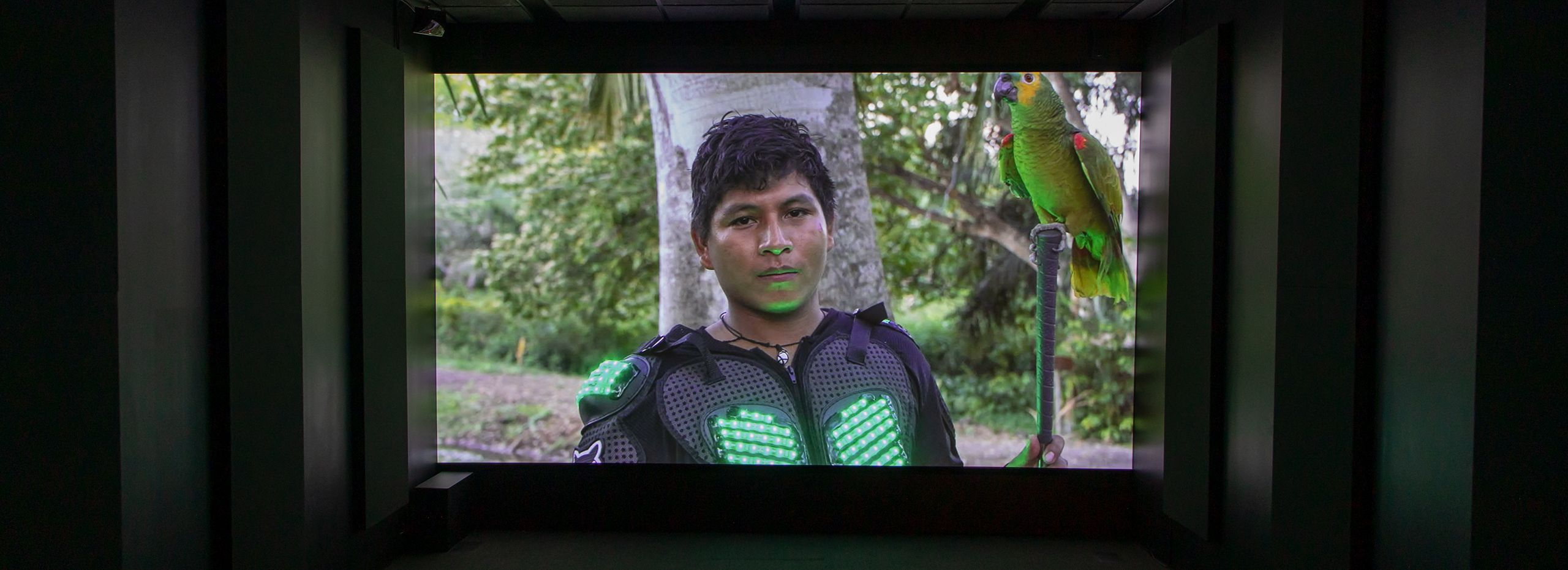
In the Picket Family Video Gallery, Floor 2L
Inviting celebratory imaginations and enactments of “Futurities, Uncertain,” the 2022 Cornell Biennial seeks an artistic call and response to counter singular utopic models, colonial visions, and socio-cultural sameness, curated by Timothy Murray, director of the Cornell Council for the Arts.
How to contemplate futurities when media art remains at risk, not simply from the quarantine of a global pandemic and the pressures of global warming but also from the very viral and material conditions of technology itself. How might the global screen arts address the political and ecological precarity of networked surveillance, planned obsolescence, and ecological deprivation?
The artworks in this series dwell on the shifting knowledge structures of media art practices that are threatened by stifling technological, capital, and political frameworks. Activating the intertwined touch of tactics, thought, and politics, these bold artists face the open abyss of the future to shake off colonial, racial, sexual, and ecological enclosures. At stake is the continual raising of the political question of media technology while churning its potential from within. This series explores not the future per se, but “futurities, uncertain” as the constructions of multiple world-making practices that might enhance understanding of the ecodigital environment at a time, today, when existence in the future remains open to question.
Wednesday, July 13–Sunday, August 14
In Madre Drone (2019–20), Patricia Domínguez (Chilean, born 1984) enacts a heroic eco-feminist effort to call nature back to the prior life of a teaming Bolivian rain forest burnt and singed by capitalist greed. In tactical performance, the artist recombines shots of a one-eyed toucan wounded by fire with the ocular wounds of 460 Santiago protesters assaulted by the bullets, pellets, and teargas of Chilean police. Madre Drone solicits protestors “a new way of seeing, one that matters, one that will permit us to experience the future.” 4K digital video (color, sound); 20:51 minutes. Courtesy of the artist. Produced in Kiosko Residency and Refugio Biotermal Aguas Calientes, Bolivia, 2019, and Santiago, Chile, 2020.
Wednesday, August 17–Sunday, September 11
In Vitro (2019) is an extraordinarily haunting video by Larissa Sansour (Palestinian Danish, born 1973) and Søren Lind (Danish, born 1970) that ponders the mixed fortunes of Alia, a young Palestinian clone who survives an eco-apocalypse of oily floods in an underground bunker beneath the Palestinian city of Bethlehem. She debates the value of memory after the toxic loss of the world above with Dunia, a dying woman who recounts the ongoing history of Palestinian trauma even in threat of its erasure by ecological disaster. Digital video from two-channel film installation (B&W, sound); 27:44 minutes. Courtesy of the artists.
Wednesday, September 14–Sunday, October 16
Gated Commune (2018) by Camel Collective (Anthony Graves [American, born 1975] and Carla Herrera-Prats [Mexican, 1973–2019]) envelops its viewer in the porous zones, ecological shift, and haunting phenomenon of a future in transition. A hypothetical account of the Neoprimitives and the Futurists explore contrasting future tendencies in architecture and social behavior that the built environment generates and reinforces. How to build physical and mental environments in the Age of the Anthropocene when futurities remain uncertain? HD video (color, English with Spanish subtitles); 8:13 minutes. Courtesy of the artists.
Wednesday, October 19–Sunday, November 13
Moon Kyungwon (Korean, born 1969) and Jeon Joonho (Korean, born 1969) situate the protagonist of The Ways of Folding Space & Flying (2015) in a digital archival bubble that floats free of a future Venice inundated by warming seas. Within the gleaming, antiseptic pod of a complex digital interface, the survivor is empowered by access to an embedded memory chip for entry into the data banks and virtual scenarios that constitute its continued existence. Digital video from a multichannel HD film installation (color, sound); 10:30 minutes. Courtesy of the artists.
Wednesday, November 16–Sunday, December 18
The Karrabing Film Collective (founded 2008 in Australia) is an Indigenous media group in Australia’s Northern Territories that mobilizes video, filmmaking, and installation as forms of grassroots resistance and self-organization. In The Mermaids, or Aiden in Wonderland (2018), only the Indigenous people of Australia are capable of surviving the future of poisoned lands and rising seascapes that threaten the Europeans who are described as being incapable of existing in these conditions for long periods of time. Image above. Film converted to digital video (color and B&W, sound); 28 minutes. Courtesy of the artists.



